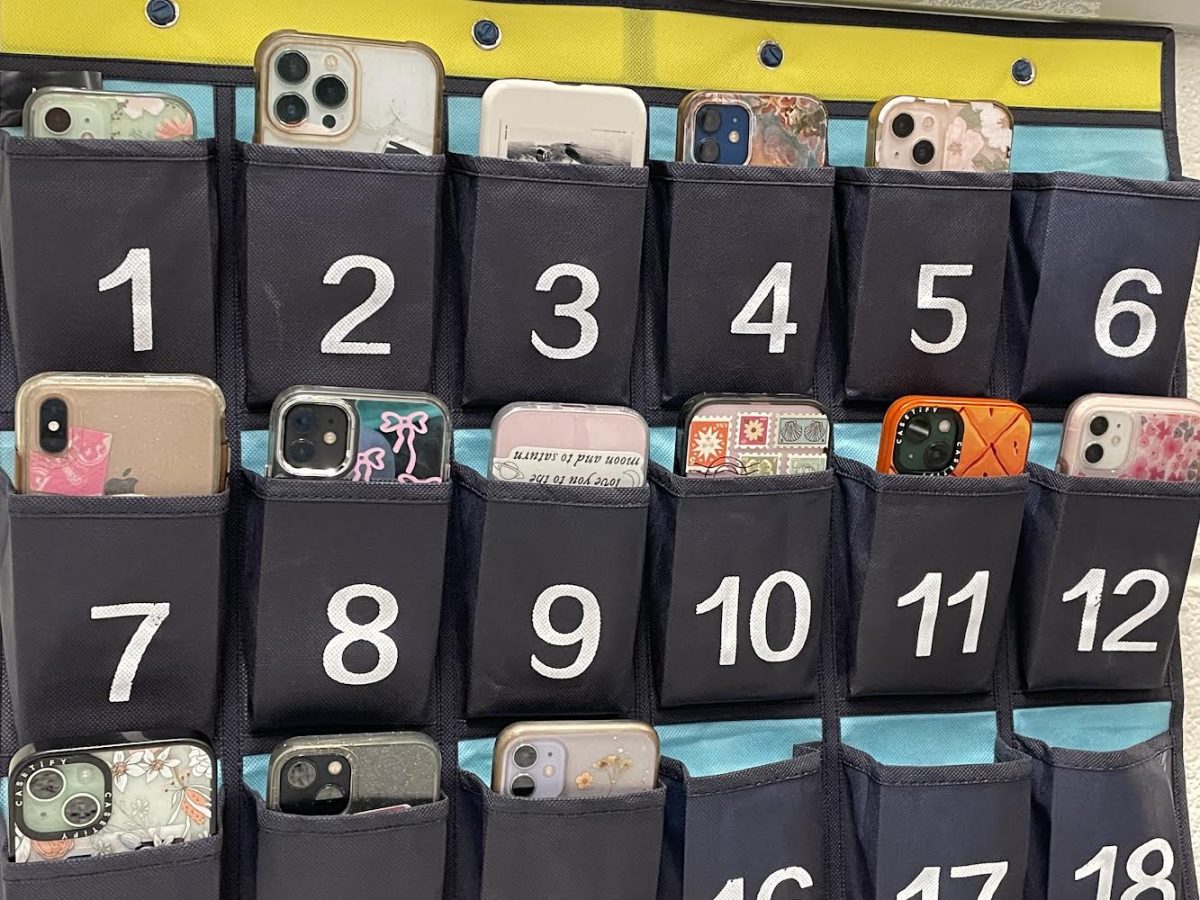Loudoun County Public Schools implemented a new phone policy this year where students must place their phones in individual pouches at the beginning of class in order to prevent the overuse of devices during instructional time.
Previously, the county allowed students to keep their phones in their backpacks and maintained lighter consequences. After realizing that students were using their phones too often during class, the county purchased a rack of 30 pouches to hang at the front wall of each classroom for student phones.
Unlike some students in the county, most teachers in the building are in support of the change to the phone policy.
“I love the new phone policy,” special education teacher Heidi Rizley said. “It’s been so exciting to see the students so engaged and happy to talk with each other.”
Mrs. Rizley believes that the new phone policy has “totally changed teaching,” citing improvements in student behavior. In Mrs. Rizley’s opinion, test scores are increasing and students are learning more efficiently.
“I can’t even think of a negative impact, but I can definitely think of positive [impacts],” Mrs. Rizley said. “Socially, emotional health, [and] obviously academically positive.”
Furthermore, Mrs. Rizley couldn’t believe how easy it was to implement the new phone policy. Students were aware of the new rules on the first day of school and began following the rules immediately, much to their credit.
“I’ve actually only had one issue,” Mrs. Rizley said. “It wasn’t really an issue. I saw one phone out, and I said to put it away, whereas last year it was constant. And so I love [the phone policy].”
Another supporter of the phone policy, German teacher Bethany Schuster, also experienced limited issues when enforcing the change to the policy.
“As far as I know, teachers enforce the rules,” Mrs. Schuster said. “That’s been my experience and students have not given me a hard time about following them.”
On the other hand, sophomore Zainab Tirmizi openly voiced her dislike for the new phone policy. She believes that high school students should have more freedom regarding the phone policy. Therefore, Tirmizi proposed a change:
“When it’s teaching time, we should leave [the phones] at the front of the classroom,” Tirmizi said. “For study hall, the teacher could check if you have any work, email your teachers to make sure you don’t have anywhere to be, and then let you use your phone.”
Most students interviewed do not oppose the new phone policy. For example, sophomore Nikki Yarbrough acknowledged the fact that the phone policy seems to be helping students become more productive.
“People are actually getting work done in classes,” Yarbrough said. “I don’t know if everyone likes it yet, but I feel like by the end of the year people are going to realize that it’s helping.”
As a final statement on the policy, school principal Timothy Flynn observed that students use their instructional time sacredly and still have an opportunity to use their phone during passing time and at lunch. Dr. Flynn believes in the overall longevity of the new phone policy.
“I don’t see the policy changing during the course of the school year,” Dr. Flynn said. “I actually think more people are going to become comfortable with it and realize that when we have phones buzzing and going off in our pockets all day long, it prevent[s] us from learning.”




